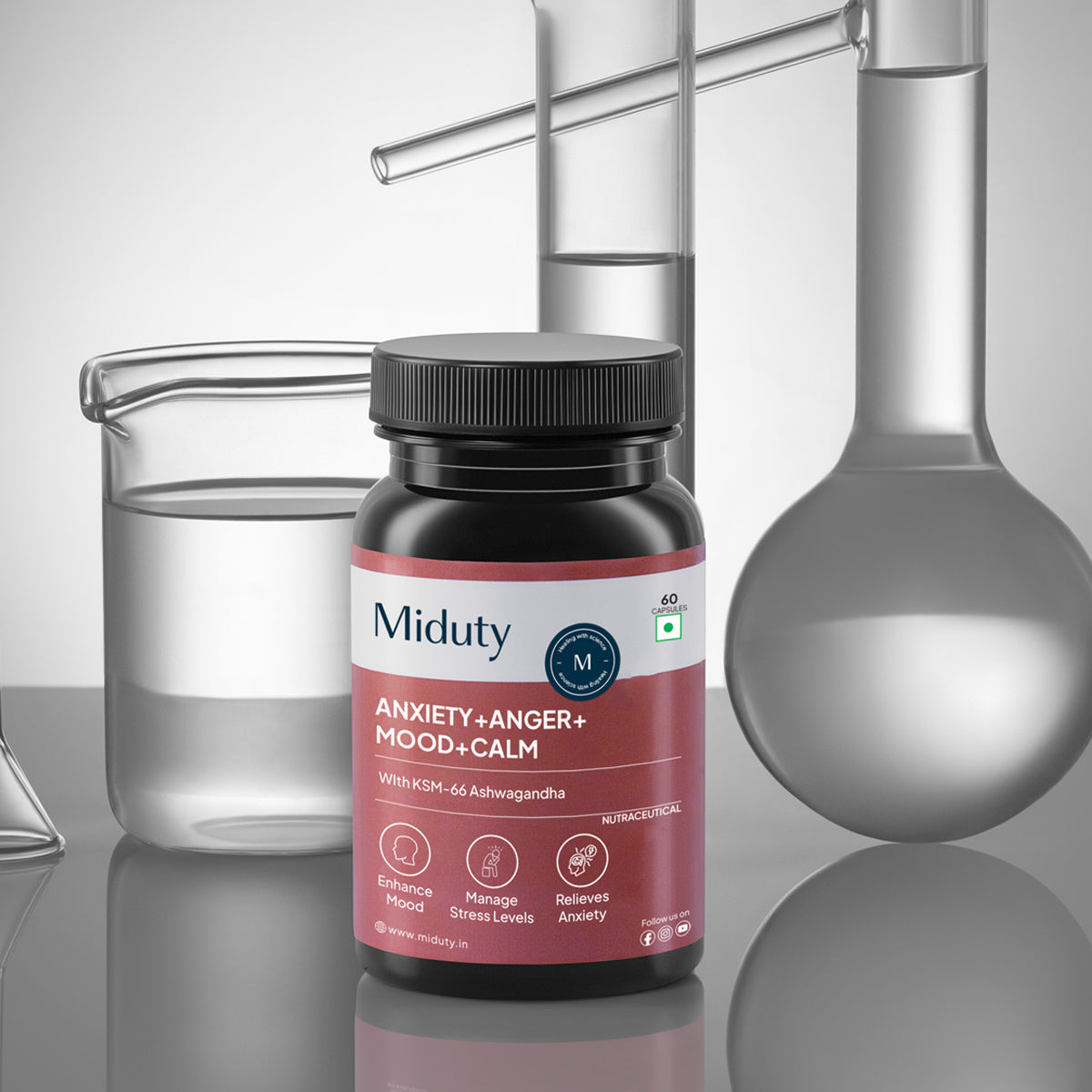
Cortisol and Sleep Disorders: How High Cortisol Levels Disrupt Your Sleep
Have you ever felt completely alert and ready to tackle the day after waking up, or experienced your heart racing during a stressful moment? Or
If you have been lying in bed at night, staring at the ceiling, unable to sleep because your mind is racing with worries about work, relationships, or life in general.
Key Takeaways
1. Studies show that cutting carbs can spike cortisol levels. Reintroducing healthy carbs, getting quality sleep, and balancing progesterone may help reverse the effects and bring cortisol back to normal levels.
2. Surprisingly, a low-salt diet could increase cortisol levels! Adding a pinch of salt to your meals might help manage stress and improve sleep.
3. Caffeine After 2 PM? Caffeine can linger in your system for up to 8 hours, spiking cortisol and messing with your ability to sleep soundly.
4. Just 10 minutes of morning sunlight can reset your circadian rhythm, helping your cortisol peak in the morning (where it should be) and drop by nighttime for better sleep.
5. Listening to music at a frequency of 432 Hz or binaural beats in the delta range can reduce stress and lower cortisol levels, setting the perfect stage for deep sleep.
High-intensity workouts before bed might be good for fitness but terrible for sleep. Opt for gentle activities like yoga or stretching to keep cortisol in check.
What many of us don't realize is that this sleeplessness might be linked to a tiny but powerful hormone called cortisol. Often referred to as the "stress hormone," cortisol plays a huge role in how well we sleep or don't sleep. Let's break it down in a way that's easy to understand and relatable, so you can finally get the rest you deserve.
What is Cortisol?
Cortisol is a hormone produced by your adrenal glands, located on top of your kidneys. Think of it as your body's natural alarm system. When you're stressed; whether it's a work deadline, a tough conversation, or even a loud noise your brain signals the adrenal glands to release cortisol, helping you stay alert and focused to tackle challenges.
However, when cortisol levels remain high for extended periods, it can negatively affect your sleep and overall health. While cortisol is often associated with stress, it plays a crucial role in your daily life by following a natural rhythm called the diurnal cycle. For example, cortisol helps you wake up feeling energized by peaking early in the day, signaling that it's time to start moving. As the day progresses, levels gradually decrease, allowing your body to wind down and prepare for sleep.
Cortisol is essential for survival. Without it, your body wouldn't be able to regulate blood sugar, control inflammation, or maintain energy levels. Its primary role is to raise blood sugar when glucose is low in the bloodstream and glycogen stores in the liver are depleted. It does this by breaking down lean muscle, bones, and even brain tissue into amino acids, which the liver converts into glucose through a process called gluconeogenesis.
The Role of Cortisol in the Body
Cortisol is a versatile hormone with several important functions:
1. Boosts Energy: Have you ever skipped a meal and still managed to power through the day? That's cortisol at work. Cortisol helps maintain blood sugar levels by signaling the liver to release stored glucose, ensuring your body has energy during fasting or stress.
2. Controls Inflammation: As a natural anti-inflammatory, cortisol helps reduce inflammation after an injury or infection, promoting healing. This is why synthetic cortisol, like hydrocortisone, is often used in medical treatments for conditions like arthritis, asthma, and skin allergies. However, prolonged high cortisol can suppress the immune system, increasing vulnerability to illness.
3. Regulating Blood Pressure: Cortisol helps maintain blood pressure by controlling sodium and water retention. While low cortisol can cause dangerously low blood pressure, high levels over time often from chronic stress which can lead to hypertension.
4. Managing the Body's Stress Response: Cortisol is part of your body's stress response. During moments of stress, like encountering danger, your brain activates the "fight or flight" response and cortisol is released to sharpen your focus, boost heart rate, and provide a surge of energy to help you act quickly. But chronic stress can lead to issues like anxiety and fatigue.
5. Regulates Metabolism: Cortisol ensures a steady energy supply by triggering gluconeogenesis (glucose production) and breaking down fats and proteins for fuel, especially in times of stress or fasting.
Understanding Sleep Cycles
Before we explore cortisol's role, it's important to understand how sleep works. Sleep is divided into several stages that repeat in cycles throughout the night:
- Stage 1 (Light Sleep): The transition phase between wakefulness and sleep.
- Stage 2 (Deeper Light Sleep): Your body temperature drops, and your heart rate slows.
- Stage 3 (Deep Sleep): The most restorative stage, crucial for physical recovery and immune function.
- REM Sleep (Rapid Eye Movement): The stage where dreaming occurs, important for memory and emotional processing.
A healthy sleep cycle involves moving smoothly through these stages multiple times each night. But when cortisol levels are imbalanced, this process can be disrupted.
The Relationship Between Cortisol and the Sleep Cycle
Have you ever noticed that some mornings you wake up feeling energized, while others, you can't stop hitting snooze? Your body's internal clock, or circadian rhythm, plays a big role, and cortisol is key to its function.
Cortisol follows a natural rhythm that aligns with your sleep-wake cycle. In the morning, your adrenal glands release a surge of cortisol to help you wake up and feel alert, known as the cortisol awakening response (CAR). Cortisol levels peak between 6 a.m. and 8 a.m. and gradually decrease throughout the day, helping your body wind down at night for restful sleep.
However, when this rhythm is disrupted, due to stress, late nights, or irregular sleep, cortisol levels may stay high, especially at night. Elevated nighttime cortisol can interfere with melatonin, the sleep hormone, making it harder to fall asleep and leading to a cycle of poor sleep and increased stress.
A study published in the Journal of Sleep Medicine Reviews found that individuals with high evening cortisol levels were significantly more likely to experience difficulty falling and staying asleep. Chronic disruptions in cortisol rhythms have even been linked to insomnia and long-term health issues like heart disease and depression.
Chronic elevated cortisol can also lead to muscle breakdown, inflammation, weakened immunity, and faster aging.
Certain factors, like low-carb diets, can raise cortisol levels as the body breaks down muscle for energy. Reintroducing healthy carbs and considering natural progesterone can help balance cortisol levels and improve sleep.
Studies are also exploring natural solutions to reduce cortisol, such as aspirin, emodin, and progesterone, which inhibit the 11β-HSD1 enzyme involved in cortisol production. To manage cortisol, reduce endurance exercise, eat enough healthy carbs, and consider progesterone supplementation. Additionally, low salt intake may contribute to higher cortisol levels, so ensure you're getting enough salt.
Simple Techniques to Fix Cortisol Levels
Managing cortisol levels is crucial for better sleep, as elevated cortisol (the stress hormone) can disrupt your sleep cycle. Here are practical tips to help you manage cortisol and improve sleep quality:
1. Practice "Physiological Sighs" for Instant Calm: Take a double inhale through your nose (filling your lungs completely), followed by a long, slow exhale through your mouth. Repeat 2-3 times. This breathing technique rapidly reduces stress and lowers cortisol levels by activating the parasympathetic nervous system.
2. Expose Yourself to Morning Sunlight Within 30 Minutes of Waking: Spend 10-15 minutes outside in natural light shortly after waking up. Morning sunlight helps regulate your circadian rhythm and cortisol production, ensuring cortisol peaks in the morning (when it should) and declines by evening.
3. Incorporate Adaptogenic Herbs: Consider adding adaptogens like ashwagandha or holy basil to your routine. These can be taken as teas, supplements, or tinctures. Adaptogens help your body adapt to stress and regulate cortisol levels over time.
4. Use "Blue Blockers" or Amber-Tinted Glasses in the Evening: Wear blue light-blocking glasses 1-2 hours before bed. Blue light from screens can suppress melatonin and increase cortisol. Amber lenses filter out blue light, signaling to your brain that it's time to wind down.
5. Try "Legs Up the Wall" Pose Before Bed: Lie on your back with your legs resting vertically against a wall for 5-10 minutes. This gentle yoga pose activates the parasympathetic nervous system, reducing cortisol and promoting relaxation.
6. Listen to Low-Frequency Music or Binaural Beats: Listen to music with a frequency of 432 Hz or binaural beats in the delta or theta range (1-4 Hz) before bed. These frequencies have been shown to reduce stress and cortisol levels while promoting deep relaxation.
7. Take a Warm Bath with Epsom Salts 1-2 Hours Before Bed: Add 1-2 cups of Epsom salts to a warm bath and soak for 20 minutes. The magnesium in Epsom salts helps relax muscles and lower cortisol, while the rise and fall in body temperature post-bath signals your body it's time to sleep.
8. Avoid High-Intensity Exercise in the Evening: Opt for gentle movement like yoga, stretching, or a leisurely walk in the evening. Intense exercise can spike cortisol, especially if done close to bedtime. Gentle activities promote relaxation instead.
9. Use a Weighted Blanket: Sleep with a weighted blanket (10% of your body weight). The gentle pressure stimulates the release of serotonin and melatonin while reducing cortisol, creating a calming effect.
10. Avoid Caffeine After 2 PM: Limit caffeine intake to the morning hours and switch to herbal teas like chamomile or rooibos in the afternoon. Caffeine can stay in your system for 6-8 hours and stimulate cortisol production, making it harder to wind down.
11. Incorporate "Forest Bathing" or Nature Time: Spend time in nature, even if it's just a park, for 20-30 minutes daily. Being in nature reduces cortisol levels and promotes a sense of calm, which can improve sleep quality.
Conclusion
Cortisol is a vital hormone that plays a crucial role in regulating energy, stress, and your sleep-wake cycle. However, chronic stress and disrupted cortisol rhythms can take a toll on your sleep and overall health. By incorporating simple yet effective strategies like practicing physiological sighs, exposing yourself to morning sunlight, using adaptogens, and engaging in calming activities like yoga or nature walks, you can help balance cortisol levels and improve sleep quality.
Small lifestyle changes, such as chewing food thoroughly, wearing blue-light blockers, or soaking in an Epsom salt bath, can make a significant difference. Remember, better sleep starts with mindful habits that promote relaxation and allow your body to return to its natural rhythm. Take control of your cortisol, and your sleep will thank you!
Frequently Asked Questions on Cortisol and Sleep Disorders -
Q1. Can high cortisol cause sleep issues?
Yes, high cortisol levels especially at night can disrupt your natural sleep-wake cycle, making it harder to fall or stay asleep. Elevated cortisol can lead to insomnia, light sleep, and frequent night awakenings.
Q2. What are the symptoms of too much cortisol in the body?
Excess cortisol, the body's primary stress hormone, can trigger a range of symptoms such as fat accumulation around the face, abdomen, and upper back, elevated blood pressure, muscle weakness, and noticeable changes in skin and hair. People may also experience low energy, mood fluctuations, anxiety, trouble sleeping, and a higher chance of getting infections.
Q3. How do you fall asleep with high cortisol?
To fall asleep with high cortisol, try calming activities before bed like deep breathing, meditation, or a warm bath. Keeping a consistent sleep routine and avoiding screens or stimulants in the evening can also help lower cortisol levels and promote better sleep.
Q4. What vitamin deficiency causes high cortisol?
Research has found a connection between insufficient vitamin D levels and increased production of cortisol, the body's primary stress hormone, which may contribute to adrenal fatigue over time.
Q5. Can high cortisol be cured?
In many instances, elevated cortisol levels can be effectively treated, especially if linked to conditions like Cushing's syndrome. Managing the root cause—such as through surgery to remove tumors, medications that reduce cortisol, or stress-reducing lifestyle adjustments—can help restore hormonal balance.
References














